William Barclay "Bat"Masterson was an American legend in his own time. With a secret! He was really a dreamer, a role model to all of today's dreamers and Americans.
Ended
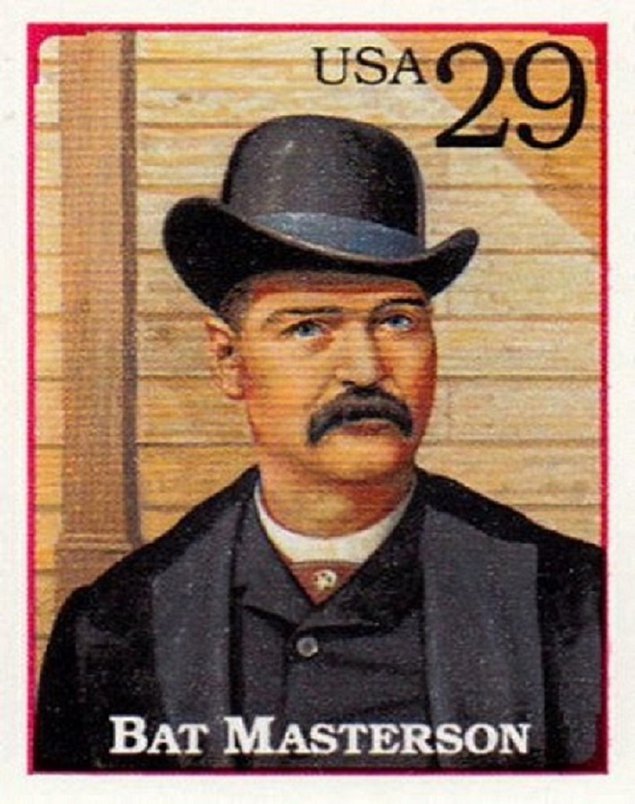
There's a secret the famous American on this stamp carried throughout his lifetime -- a secret that stopped him from accepting the nomination to one of the highest offices in the United States.
In 1905, William Barclay “Bat” Masterson was a sports reporter for the New York Morning Telegraph. He was the former sheriff of Dodge City, frontier scout, Indian fighter, professional gambler and a legendary gunfighter.
Pres. Theodore Roosevelt (TR) offered Bat the job as U.S. Marshal for the Oklahoma Territory.
“It wouldn’t do! A man of my peculiar reputation couldn’t hold such a place without trouble. I’d have some drunken boy to kill once a year. Some kid who was born after I took my guns off would get drunk and look me over and the longer he looked, the less he’d be able to see where my reputation came from. In the end he’d crawl around to a gunplay and I’d have to send him over the jump,” Masterson wrote TR in his refusal letter.
Masterson was a talented writer. That letter is the only time he lied in print, let alone to the President of the United States. Well, it was easier than telling TR the truth. The truth meant losing his reputation, which was more important to him that anything else in the world. And much, much worse.
A nominee to be Federal Marshal, whether of a state or territory, needs to be confirmed by the full U.S. Senate. If that had happened, Masterson knew he’d be lucky to get out of the Senate hearing without being put in handcuffs and deported to a country he never called home.
Masterson is what today we call a dreamer. He kept his secret his whole life. How did this dreamer do? He became a living American legend, who commented on a 21st Century disaster in the Washington Post in 2017.
Table of Contents
Prologue - The First Dreamer
Bat Masterson is an American frontier legend, on a U.S. stamp. In 1904 he turned down a federal appointment requiring Senate approval. He was afraid it would be discovered he was what today we call a dreamer, then deported to a country he never called home.
PART ONE - They Called Him Bat, Bat Masterson
Chapter One- The Illegal Alien
Masterson was 8 when his parents took him across the unmarked Canadian border into the U.S. Facing discrimination in Upstate New York, they moved to Kansas where Masterson and older brother Ed became teenage buffalo hunters.
Old Bat
Gaining fame as a buffalo hunter, he is given the nickname of "Bat," after another famous huntsman. Like many immigrants, he has reinvented himself. Masterson and Wyatt Earp become lifelong friends.
Chapter Three - Battle of Adobe Walls
Bat makes his reputation as an Indian fighter at a Texas buffalo-hunting settlement attacked by Indians. The irony? An illegal immigrant is firing at Native Americans.
Chapter Four - Mollie Brennan and the Sweetwater Shootout
Pres. Grant signs the Page Act, the nation's first law to restrict immigration. In Texas, Masterson loves Mollie. She throws herself in front of a bullet meant for him. He shoots her killer; Mollie dies.
Chapter Five- Mere Claptrap
The shootout leaves Masterson with a limp. Sometimes using a cane, he is elected sheriff of Ford County, Kansas, including Dodge City, where he has many adventures, some with Earp.
Chapter Six - Dodge City Hours
Ed Masterson is killed by two cowboys. When they turn on him, Bat shoots them dead. Now, two people close to him have been murdered.
Chapter Seven- Dora Hand
Bat solves the murder of a famous Dodge City entertainer. He shoots the killer in the arm, who later dies from the wound, Masterson's fourth killing.
Chapter Eight -Time to Get Out of Dodge
Masterson meets and greets Frank and Jesse James. Then he saves Texas Billy Thompson from a lynch mob, with the assistance of Buffalo Bill Cody.
Chapter Nine - Ink Stained Wretch
Pres. Arthur bans Chinese immigrants. Bat publishes Vox Populi, a newspaper which gives him the writing bug.
Chapter Ten - Emma From Philadelphia
Pres. Harrison gets the 1891 Immigration Act passed, expanding the list of "excludable and deportable immigrants." Bat meets, falls in love with and marries Emma Moulton.
Pres. Cleveland begins the first mass deportations in U.S. history. Bat gets into boxing as an official at championship fights. During one of them, he meets Judge Roy Bean, the legendary Law West of the Pecos.
Chapter Twelve - Gun to His Back
Pres. McKinley deports even more illegal aliens. Bat knows he is one. If the government knew this, he'd lose everything. In the 1900 census, Bat lies and claims he was born in Missouri. Then, his citizenship at a Denver polling place is questioned.
PART TWO - A Gambler's Game He Always Won
Chapter Thirteen -The Great White Way
Railing at his citizenship being challenged, Bat is kicked out of Denver at gunpoint. Masterson goes to NYC and becomes the sports editor of the NY Morning Telegraph, reporting on boxing.
Chapter Fourteen - White House Gunfighter
TR wants to appoint Bat federal marshal of Oklahoma, requiring a senate hearing, where his secret would be exposed. Bat turns him down. TR appoints him deputy marshal of NYC, which doesn't require Senate confirmation. Masterson becomes good friends with Damon Runyon and Ty Cobb among others.
Chapter Fifteen - Murder at Big Moose Lake
Chester Gillette's alleged murder of Grace Brown is the biggest murder case in New York State history. Bat is sent upstate to cover it.
Chapter Sixteen - The Trial of the Century
Masterson notices during Gillette's sensational murder trial how prejudicial the judge and DA are.
Chapter Seventeen - The Little Factory Girl
The case becomes the basis for the 1925 novel An American Tragedy by Theodore Dreiser and the 1951 film A Place in the Sun starring Montgomery Clift , Elizabeth Taylor and Shelley Winters.
Chapter Eighteen - New Style Lynch Law In Upstate New York
After Gillette's murder conviction, Masterson writes a story calling out the judge and D.A. for corruption. He believes Gillette is innocent. This dreamer then has to defend the First Amendment because of what he writes.
Chapter Nineteen - Return to Dodge
Congress passes the Immigration Act of 1907, creating new categories of "undesirables." Bat lies and tell the 1910 census taker he was born in Missouri. He attends the Great White Hope fight in Reno.
Chapter Twenty - The Gunfighter and the Supreme Court Justice
Masterson sues the NY American for libel over an article that says he made his reputation shooting Mexicans and Indians in the back. Future Supreme Court justice Benjamin Cardozo is the paper's attorney at trial.
Chapter Twenty-One - Johnson V. Willard
Covering the 1915 World Heavyweight Championship fight in Cuba between the hated black champion and the white challenger, Masterson shows in his writing how unbiased he is.
Chapter Twenty-Two - The Great Prognosticator
Pres. Wilson endorses a plan to stop a Canadian invasion, making Masterson a possible enemy of the U.S. Bat covers the Jack Dempsey v Jess Willard championship fight, this time guessing wrong on who the winner will be.
Chapter Twenty-Three - William S. Hart, Western Movie Star
Still concerned about deportation, Masterson lies again in 1920, telling the census taker he's from Illinois. He is befriended by Hart, the silent screen's most famous Western actor.
Chapter Twenty-Four- No One Has Come Since to Replace His Name
Oct. 25, 1921, Masterson dies writing at his desk in NYC. Hailed as an American legend, he went to his grave with his secret as a dreamer intact.
Chapter Twenty-Five - A Gambler's Game He Always Won
Masterson influences a whole generation of sports journalists. His friend Damon Runyon immortalizes him in a short story that becomes the film Guys and Dolls, where Marlon Brando plays Sky Masterson, a character based on Bat. Gene Barry played Bat in a classic TV Series, '58-'61 and later in the late 80's-'90's in TV movies of the week. Bat was put on a US stamp in 1994.
Epilogue - Houston, Texas, 2017
How did this dreamer do? An American legend, from the grave, Masterson commented on Hurricane Harvey in the Washington Post.
Acknowledgments
End Notes
Index
This is the first book to look at Bat Masterson as an illegal alien. Given the current debate in the U.S. regarding illegal immigration, my book gives everyone a true dreamer role model. Bat Masterson was an American living legend.
The book has four markets: those who know Bat Masterson; those who are interested in the current debate regarding dreamers; history and true crime readers.
PLATFORMS
SOCIAL MEDIA
Rosen has 1300 Facebook friends who are readers. He is an administrator in a true crime group with 2100 members who buy his books. He is also a member of Facebook dreamer, history, and other true crime groups with over 40,000 members.
UPDATE: The Trail of the Century chapter from my book has just been published in True Crime: Case Files Magazine
https://newsstand.joomag.com/e...
I am an administrator in the Facebook True Crime with Maria Group that has 2100 members. The second week in March, I am hosting an online discussion about the book.
TELEVISION
He's appeared on Dateline NBC. A regular on Investigation Discovery (ID) programming, where he has appeared as a commentator in many episodes of Evil Twins, Evil Kin, Deadly Sins, On the Case With Paula Zahn and other shows. Each time he tapes a show, whatever book he is promoting appears next to his name on the lower third of the screen. These shows have numerous domestic and international repeats and increase book sales.
PODCASTS
Rosen is a regular guest on True Murder with Dan Zupansky, which has 1,000,000 verifiable listeners. Zupansky interviews him about four times a year.
BLURBS
Jim DeFelice – a New York Times best-selling author, he is the co-author of American Sniper.
Harold Schechter - The dean of historical true crime and best-selling author.
Hank Garfield – a novelist, he is the great great grandson of Pres. James Garfield. Hank wrote the foreword to Rosen's book Murdering the President.
Tefertiller debunks the Earp myth of the noble frontier marshal perpetuated by Stuart Lake’s fictional biography. He shows how Earp committed the cold-blooded murder of two men he believed were responsible for the assassination of his brother Morgan. Tefertiller’s best-seller builds a completely different view of Earp, seen through the prism of what a person does when law breaks down in a lawless place.
An excellent book about Earp and Masterson's law enforcement service in Dodge City.
DeArment tries overly hard to
demystify Masterson's life in the Big Apple and in the process,
misses the key point: while the TV series was a fictionalized
version of his life, it was based on a real biography. In his
effort to desensationalize, he turns Masterson into a rather
ordinary figure.
Discusses Masterson's most famous shootouts and his
friendship with famous Westerners. Sensationalism without
historical accuracy.
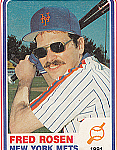
William Barclay "Bat" Masterson was my childhood idol. When I became an investigative reporter, determined to stand up for the underdog like he did, he became an adult role model.
250 copies • Completed manuscript.
Atlantic Publishing has been providing millions of readers information to jumpstart their careers, start businesses, manage employees, invest, plan for retirement, learn technologies, build relationships, and live rewarding, fulfilling lives. Our award-winning authors and publication staff strive to make our products the best and most up-to-date available. We go further than most publishers to get our customers the best products.

If the name sounds familiar, it's because it's a variation of the name of the publishing company used in the television series Castle. For those unfamiliar with the premise, the show featured a mystery writer who follows a police detective for research and winds up writing an entire series of books based on the cases they work on together. Having become friends during the run of the series, the imprint's founders (both authors themselves), thought they'd pay homage to the show and brought Black Pawn Press to life.
In forming Black Pawn, we knew we wanted to do things a little differently. Instead of focusing on specific genres and tailoring to industry standard demographics, we're more interested in allowing people to simply tell their stories. Whether it's based on actual events, or if it's something they've allowed their imaginations to conjure, we're going to give them the opportunity to share their work with readers in both print and electronic formats. While other publishers are constantly worried about the bottom line, money isn't our driving force. Good people are, and it's sometimes those people who are being overlooked by mainstream publishing houses. Just take a look at some of the titles we've released so far and those in development, and you'll discover everything from a real-life mystical experience to the basis of several upcoming feature films and television concepts.
So when you think of Black Pawn Press, think of us as a publishing house where we firmly believe that imagination has no boundaries.
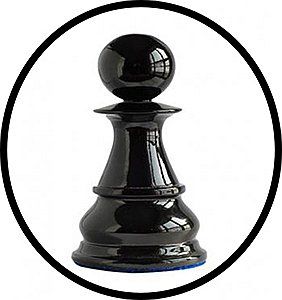
250 copies • Partial manuscript.
Cranthorpe Millner operates a hybrid publishing model. This means, should an author pass our editors’ strict filtering system, we can offer different kinds of agreements depending on the author and the manuscript. With some authors, we work under a ‘traditional’ model, whereby we cover the full cost of publication and the author is offered industry-standard royalties (8-10%). To some authors, we offer what we call a partnership or contributory agreement, whereby the author is asked for a financial contribution so that we may share the risk and enter into a partnership together to publish the author’s book. In this case, the author receives around 60-75% royalties.
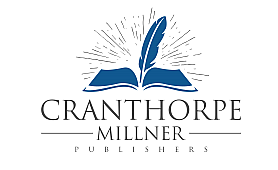
Why Publish with RJPP?
The book business is a difficult pursuit. Especially for an Independent writer. The decision to go it alone and self-publish, or go with a small press is strictly an individual business decision. Hiring professional freelance resources like editors, cover designers, and formatters can be daunting enough. Let alone that dreaded marketing and promotion. All of that takes precious time away from what you could be doing. Writing!
With an experienced Literary Agent, award-winning Author, publicist, and publisher like RJ Parker, you don't have to do it alone. RJPP offers years of success and reputation to represent you and your work. Ask yourself, “Do I want to succeed? Is my book worthy of reaping all it is worth and then some?” If you take pride in your work and want to excel to the top, RJ Parker will implement his years of knowledge and skills learned as an industry leader in marketing to get your work into the hands of the people who matter.
What about the nitty-gritty financial workings?
We don't pay advances as a traditional firm does. (which in this business, an advance is used against royalties before you get paid) BUT, we DO pay a much higher royalty rate AND you get paid every month! The standard industry royalty rate is 12-16%. We pay 50% to established writers, and 40% to new authors. (New authors will pay a setup fee). For the majority of authors, we pay the cost of editing, cover artist, ISBN number, formatting, etc.
Interested?
If you are looking for mediocrity or status quo, RJ Parker may not be a good fit for you. However, Parker is a go-getter in the industry who will not cease until he makes your dreams become your reality!
Please send your proposal to agent@rjparkerpublishing.com and include:
Book Title
Book Description
Synopsis (what your book is about and why you think it’s a good fit with RJPP)
A brief bio, including your city of residence, and publication history
First two chapters
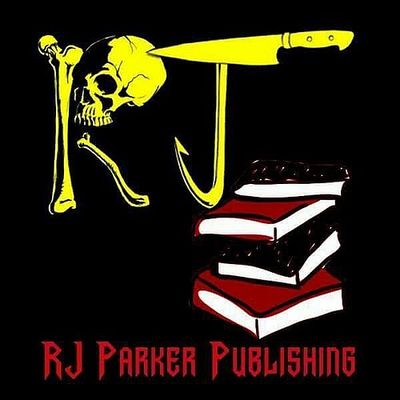
Dear Author,
You worked hard to write your manuscript, and you know that expert assistance is needed to ready it for the market. But perhaps you didn’t realize that working with a publisher is no longer necessary—especially publishers who charge fees to produce your book upfront and "share" more of your revenue whenever a book is sold.
1106 Design is an author services company that has served over 4,000 authors since 2001. We offer all the editorial and design services you’d expect from a publisher, transforming your manuscript into a polished book. But here's the difference: we help you secure print-on-demand printing and worldwide distribution in YOUR name. This means you'll earn several dollars more for every book sold instead of a meager “royalty” and never lose control of your book or your book files.
We understand that your book is not just a passion project but also a potential source of income. No two books or authors are alike. That's why we'll customize a package of services tailored to your needs at affordable prices, starting at $5,555. And here's the best part: after this one-time investment, every penny of revenue from book sales is deposited directly to your bank account, never to ours first.
If this sounds like a better way to publish your book, I invite you to browse our services, design samples, no-surprises pricing, outstanding customer reviews, and educational articles at https://1106design.com. You can download a free PDF of my book, "Publish Like the Pros: A Brief Guide to Quality Self-Publishing and an Insider's Look at a Misunderstood Industry," and request a free, no-obligation consultation.
1106 Design is rated A+ by the Better Business Bureau. We are a “Highly Recommended Expert” at IngramSpark.com and rated "Excellent" at Alli, The Alliance for Independent Authors, at SelfPublishingAdvice.org. Alli's "watchdog list" of the best and worst publishing services companies is an invaluable resource.
How can we serve you today?
Sincerely,
Michele DeFilippo, owner

250 copies • Partial manuscript.
Atmosphere Press is an independent publisher dedicated to author rights. We publish in all genres and have an exceptional editorial, design, and promotional staff. We stand for Honesty, Transparency, Professionalism, and Kindness. We want our authors and their readers to be blown away when they first hold that book in their hands. It needs to look good inside and out, and feel good to the touch. And, of course, the words need to be top-notch, and our editors are devoted to making that the case.

100 copies • Partial manuscript.
Bookmobile provides book printing, graphic design, and other resources to support book publishers in an ever-changing environment. Superior quality, excellent customer service, flexibility, and timely turnarounds have attracted nearly 1,000 satisfied clients to Bookmobile, including trade houses, university presses, independent publishers, museums, galleries, artists, and more. In addition, we manage eBook conversions and produce galleys, and regularly provide short-run reprints of 750 copies or fewer for major publishers such as Graywolf Press.

100 copies • Completed manuscript.
eBooks2go, Inc. was founded in 2011 to provide the missing link for all your publishing needs. Our end-to-end solutions provide the guidance and support that enable publishers and independent authors to pursue their passions. To date, we have helped more than 1,000 authors and 250 publishers worldwide. We offer an array of simple and affordable solutions to assist self-publishing authors at every stage of the book publishing process. Our comprehensive service offering includes editing, print and eBook production, book marketing, cover designs, ISBN registration, and even website designs. We are a single source for all of your publishing needs.

100 copies • Completed manuscript.
Happy Self Publishing has helped 500+ authors to get their books self-published, hit the #1 position in the Amazon bestseller charts, and also establish their author website & brand to grow their business. And the best thing is, we do all this without taking away your rights and royalties. Let's schedule a call to discuss the next steps in your book project: www.meetme.so/jyotsnaramachandran

ShieldCrest are book publishers based in the UK who fill that vital gap for talented authors where mainstream publishers are unwilling to give them that chance. We strive for excellence and invest in our authors and are listed in FreeIndex as the number one independent publisher in the UK for price quality and service rated author satisfaction. We publish books of all genres including; fiction, historical, biographies and children's books.
ShieldCrest publishing continues to grow rapidly with satisfied authors throughout the UK and overseas. Our range of products includes paperbacks, hardbacks and digitised e-books in all formats used globally in the myriad of e-readers.
In addition to the above, ShieldCrest provides a complete range of services including book design and layout, illustrations, proof reading and editing. For marketing we offer author web page, press releases, social media marketing packages and many other support services to help both first time and experienced authors get their books into the market quickly and maximise on the opportunities available.
These services enable us to guide our authors through the process as we transform their manuscript into a professional book, which can take its place with pride next to any famous author's book of the same genre.
The staff at ShieldCrest have many years experience in the book industry and this wealth of experience is put at the disposal of our authors.
Our clients include established authors such as Diane Marshall who has been acclaimed as the best writing talent to come from Scotland for years by The Scotsman newspaper, and Prof Donald Longmore OBE, who performed the first heart transplant in the UK and has sold thousands of medical books used by students throughout the world. We also recently released "Martin Foran-The Forgotten Man" by J.R. Stephenson, which features fraud within the police, abuse within the prison service and injustices in the courts and has been featured in the press and on TV.
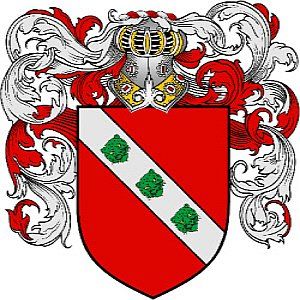
CHAPTER
THIRTEEN
THE
GREAT WHITE WAY
The Old West ended the moment Hamilton Armstrong, Denver’s Chief of Police, picked up the telephone to call Jim Marshall, Cripple Creek’s town marshal.
There were no telephones in the Old West. The fastest communication was between telegraph stations. Not every town had one. Sometimes you had to ride from one town to another to get word out about something, or maybe write a letter and mail it.
Before inventing the telephone, Alexander Graham Bell had perfected a telegraph that improved on Samuel Morse’s invention. But it wouldn’t do. Aleck Bell knew there had to be a faster way to communicate by voice instantly and he set to work on following through on his dream.
At the same moment on the afternoon of June 25, 1876 that Custer engaged the Cheyenne and Sioux at the Battle of the Little Big Horn in Montana Territory, thousands of miles east in the City of Brotherly Love, Dr. Bell introduced the world to his telephone at the Philadelphia Centennial Exposition.
Once a locality was wired for the phone and the wiring extended to other venues, Bell’s phone changed everything, especially emergency communication. If the phone was not in existence, Armstrong would have had to telegraph Marshall, instead of getting him on the phone instantly.
It was one hundred fifteen miles as the crow flies from Denver to Cripple Creek. Before the phone, by the time telegram was sent, delivered to Marshall, he answered it, made his plans and then departed Cripple Creek, it could be days before he reached Denver.
During the interim, someone could be dead from a bullet fired from Masterson’s drunken gun. Or maybe Masterson himself. Not now. The phone call from Denver to Cripple Creek was faster than any bullet in existence. Marshall had gotten the phone call instantly and had hightailed it for Denver by train.
Bat and Marshall had history; they knew each other from Dodge City. Now it was a day later. Marshall’s train let him off in Denver a little too late to meet Bat at the barber shop at 10AM. The barber had done as Bat requested and told Marshall where he was.
It was early afternoon when Marshall sauntered quietly into the saloon and smartly, came up on Bat’s right side, next to his gun hand, which made it difficult for Bat to draw his revolver in an
unobstructed manner. Masterson looked up from his drink and turned to his right.
Just seeing his old, armed acquaintance sobered him up. He knew Marshall would use his gun if he felt the need to. Bat realized that he had done something he had never done - he’d acted stupidly, out of emotion. No matter how upset he was at having his citizenship challenged, he never should have been hurrahing the Denver saloons with his gun.
He could never live with himself if someone was shot because he got drunk. What was he some low life Dodge City cowboy looking for trouble? He was better than that.
“Does this mean a killing, Jim?” he asked, looking Marshall in the eyes.
“Depends on whether you are reasonable, Bat.” Marshall answered.
“Meaning just what?”
“Meaning that it is for you to say.”
“What do you mean, reasonable?”
“Denver is too big a town for you to hurrah, Bat. Time for you to move on.”
If things went further in Denver, they would soon discover he was in fact disqualified to vote, because he was an illegal alien.
“If I leave, how soon do I have to go?” he asked Marshall.
“Could you make the four o’clock Burlington, Bat?”
“I reckon so.”
The four o’clock Burlington went eastbound to Chicago. What he told Emma is unknown. What is known is that he did as agreed. No newspaper got the story of Bat Masterson being kicked out of Denver.
Jim Marshall made certain of it. He visited the local papers and
told them to forget it, there was no story. Bat had kept his word
and Marshall felt he deserved his dignity.
Bat stopped in Chicago to see his friend William Pinkerton of the
Pinkerton National Detective Agency. After renewing their
acquaintance, Bat got on a train for New York City. Once again, he got to see Upstate New York.
Just as the railroad helped make Dodge City into a center of commerce, the same thing happened in New York City, except on a much grander scale. Bat’s train came into Manhattan through the north, traversing the Park Avenue Tunnel.
What he saw when he got off the train at Forty Second Street on the eastside of midtown Manhattan was a terminal
with lots of tracks running into and out of it. The place had high,
vaulted ceilings.
It was a truly majestic space, in which the echoing sound of the
locomotive brakes bounced off the walls. When Masterson walked outside onto 42nd Street, he saw the trolleys going down the street.
And there were people everywhere, more than he had ever seen in any one place in any city. In fact there were three and a half million people in New York City. Denver wouldn’t even fit in one borough.
There was no difference between Bat and the others before him who had come to the city to make a new life for their family and themselves. His new life was in front of him on the city’s streets, just as it was for any immigrant. That’s what America was about – a new life, a chance to reinvent yourself.
The five boroughs comprising New York City are the Bronx, Manhattan, Brooklyn, Queens and Staten Island. Four years earlier in 1898, they were all consolidated as one municipal entity, New York City. The Federal government had jurisdiction in the Eastern District of New York that included Brooklyn, and the Southern District of New York, which included Manhattan, over those committing federal crimes.
Boxing, horse racing, baseball all flourished in the city. Baseball was particularly popular. The Brooklyn Dodgers of the National League played at Ebbets Field in Brooklyn, the New York Giants, another National League team, played in Manhattan’s the Polo Grounds, a place known as Coogan’s Bluff.
For a sporting man like Masterson, New York City was the perfect place for a second act. Like anyone else walking the pavement, Masterson could feel the energy of the place coming right up from the ground.
Street cars and their tracks traversed the city west and east, then north and south. Overhead were railroad lines that traversed Manhattan from one end of the island to the other.
And then there was Broadway. Known as the Great White Way, it was pretty obvious why. At night, the place was completely lit up with electric lights on all the buildings that lined the street. Office buildings, legitimate theaters, vaudeville theaters, saloons, restaurants and stores were all lit up, sometimes in various colors, though usually with white lights.
The city was so exciting, it was intoxicating. Masterson had left Denver in sort of a hurry, for obvious reasons. So he didn’t have a chance to plan out anything to do when he arrived to make a living. He stayed at his friend George Considine's Hotel Metropole at 147 West 43rd Street, a block off Times Square.
After a few days at the downtown hotel, Bat decided to go uptown. Anything above 50th Street in Manhattan is considered uptown.
“I went up to see a friend on 65th Street near Columbus Avenue,
yesterday afternoon. He was out and I walked back to the avenue. I saw a fruit stand and bought an orange and was walking up the street peeling the fruit when I thought I’d get a shine. Then I walked along and met Sullivan, an old Western friend,” he later told The New York Times.
It is also very clear from his description that Masterson already knew his way around the city, from when he had protected Jay Gould’s son years earlier. Bat didn’t see anything unusual about him, a frontiersman, being in the biggest city in the United States, perhaps even the world.
“He (Sullivan] told me he was going to sail for Europe today, but I guess he won’t, because this fresh detective locked him up too, for what I don’t know. Sullivan and I were talking, when the first
thing I knew somebody tripped Sullivan and knocked him into the gutter.
“They slugged him hard, and then pitched him into a saloon. Then they came at me, but they were not very rough. They told me they were officers and put me in the saloon. They drove us in cabs down to Headquarters and there I saw Snow, whom I knew slightly, and I thought to myself:
‘Gee, the big slob has been pinched too. I wonder what he has been doing.’”
Masterson had just gotten kicked out of one town at gunpoint, and now he was being arrested in another. The cops told Masterson he and the others were being arrested for running a crooked faro game in which they cheated George H. Snow on the train from Chicago to New York City. A resident of Salt Lake City, Snow was the son of the president of the Mormon church, as well as a church elder himself.
“I went up to Snow [at the police station] and asked him what he meant by having me arrested. He answered, ‘I don’t know you at all, sir.’
“Well, you ought to know me for you’ve caused my arrest,” Masterson said to Snow.
Before Bat even had a chance to declare his innocence, the police searched him, as they would any suspect they were in the process of booking for a crime.
“A huge revolver was found in his hip pocket,” the New York Times reported. iHe was charged with carrying a concealed weapon. The court set a $500 bond.“
Bat always carried a revolver. What he didn’t know was that unlike the other places he’d lived in, New York State had a law that disallowed carrying a concealed weapon. He was booked for carrying the concealed Colt revolver and cheating Snow in the faro game.
Bat had quite a few friends in New York City. Besides George Considine, there was the boxing community. Between then all, they came up with the $500 for Bat’s bond. He was freed, pending a formal hearing. Still, the loss of his gun really bothered him.
“It’s like losing all I have,” he told The New York Times. “It is like
my life, for it has often saved my life, and they took it away from
me. Property confiscated by the police, I understand, is auctioned off, and there will be someone there to get that gun for me if it costs many stacks of blues to do it.”ii
A short time later, Elder Snow decided to drop the charges against him. The court fined Bat ten dollars for carrying a concealed weapon. There is no record of whether or not Bat got his revolver back.
The press from coast to coast speculated whether it was the same gun with 23 notches that he used to kill all those men, as previously reported by the New York Sun.
Masterson paid his fine, the other charges were dropped. With his legal problems resolved, Bat sent for Emma. When Emma arrived, they took up residence at 300 West Forty Ninth Street.
Bat looked up at the eight-story apartment building, where they had decided to rent an apartment in the middle of the theater district.
Constructed of red brick, the building looked like it would withstand a hurricane. Each floor had a set of three windows facing out to the street. It was certainly bigger than anything he’d lived in before. Their apartment was on the third floor, a walk-up. Now that they were settled, Masterson knew that he needed a job.
Just as the New York Sun’s article about him killing 23 men helped build his reputation, so did his arrest for fleecing Elder Snow, especially carrying the Colt. 45. As far as the local papers were concerned, Bat Masterson was the real thing: a bonafide Old West lawman in the big city. That made him a celebrity.
Masterson didn’t look at New York City any differently than Denver or Dodge or whatever. Except there was more opportunity to make money here. Yes, gambling wasn’t legal in New York, so he couldn’t be a professional gambler like he’d been out West. And the only bison were in the local zoo.
That left one option for him: writing and reporting on what he knew: boxing. Professional prizefighting was legal in New York State. Then in 1903, an Immigration Act was passed by Congress that added four inadmissible classes of people who could not immigrate to then U.S., including epileptics.
If Emma, an epileptic, had been an immigrant, she would have not been allowed in the country. Months later, Bat looked up the Lewis brothers. William E. Lewis was now editor of the New York Morning Telegraph newspaper. His brother Alfred Henry had become a well-known, prolific book and magazine writer.
When they all got together, fully aware of his Denver boxing and
journalistic background, William E. Lewis offered Bat the job of his paper’s sports editor. Here, in NYC in his fiftieth year, Masterson knew he was being offered something no one from his background had ever been offered – a second act.
No gunfighter, sheriff or marshal that Masterson was aware of had ever been able to start a new and different career later in their lives. Heck, most of them were dead. And now that he had reached this pinnacle in his life, Masterson took it one step further and much higher up.
Hi folks.
Just wanted to let you know that my book is under consideration by a few publishers. Will let you know what's up when I …
I am doing an online discussion in the true crime room where I am an administrator, True Crime Discussions With Maria. I will be live 3/13 …
My chapter entitled "The Trial of the Century" has been excerpted in the new issue of this magazine.
$13
3 readers
A special price for members of this true crime group! Thank you for your support!
Includes:
$15
1 reader
An ebook copy of my book Bat Masterson: The First Dreamer
Includes:
$18
4 readers
A special discount of a signed copy for members of the group TRUE CRIME DISCUSSIONS WITH MARIA. Thank you for your support!
Includes:
$20
22 readers
Personally autographed hardcover copy!
Includes:
$40
0 readers
This is for TWO copies of Bat Masterson: The First Dreamer PLUS an ebook edition!
Includes:
$75
0 readers
THREE personally signed copies, ebook copy, AND a special mention in the acknowledgments of my book
Includes:
$100
0 readers
FIVE personally autographed copies, an ebook copy, a very special mention in the acknowledgments, a personal thank you note; AND two copies of Bat Masterson's original Morning Telegraph columns.
Includes: